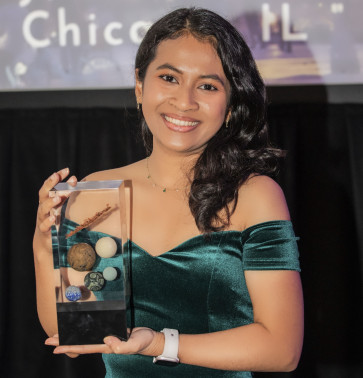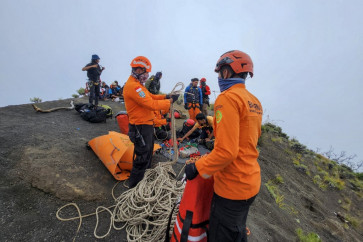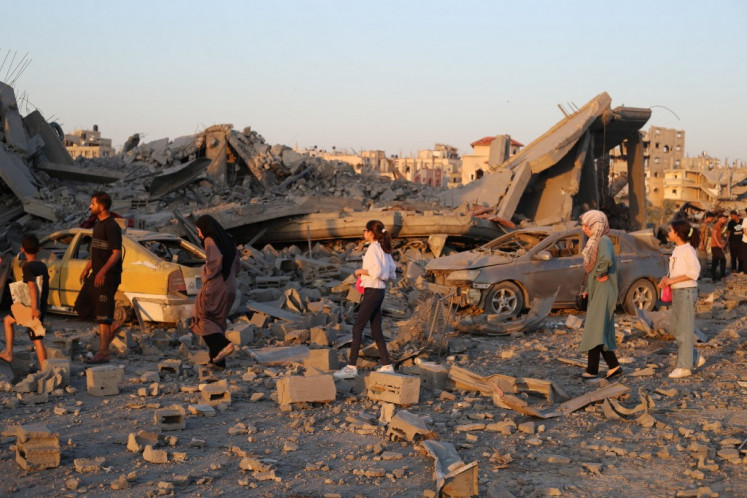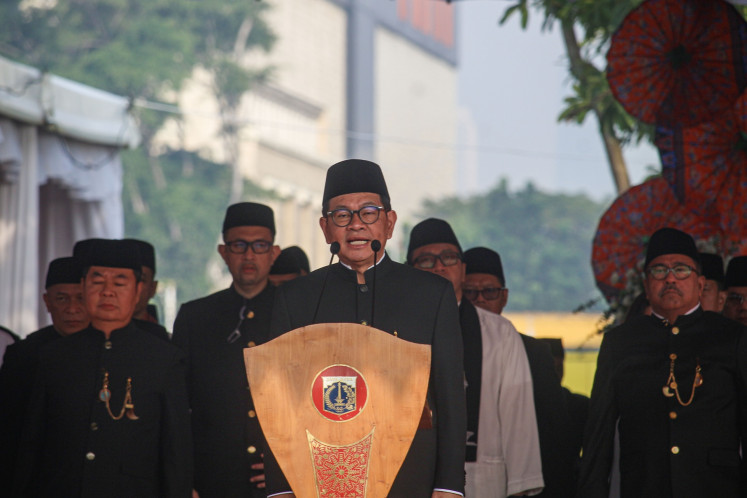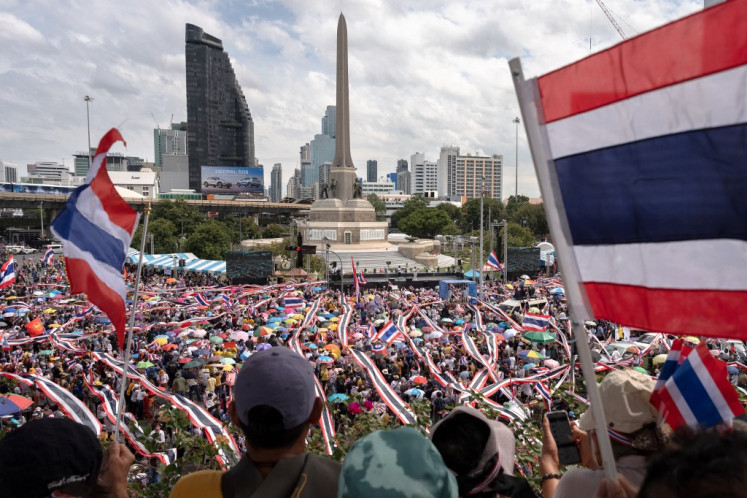Popular Reads
Top Results
Can't find what you're looking for?
View all search resultsPopular Reads
Top Results
Can't find what you're looking for?
View all search results'We live in a world that is being torn between extremes'
We have extremism of violence and a certain style of religious extremism in all faith communities. Among some, we would call secularist extremists. On the other hand, we have extremism that sometimes tends to the think that just one solution is all that’s needed.
Change text size
Gift Premium Articles
to Anyone
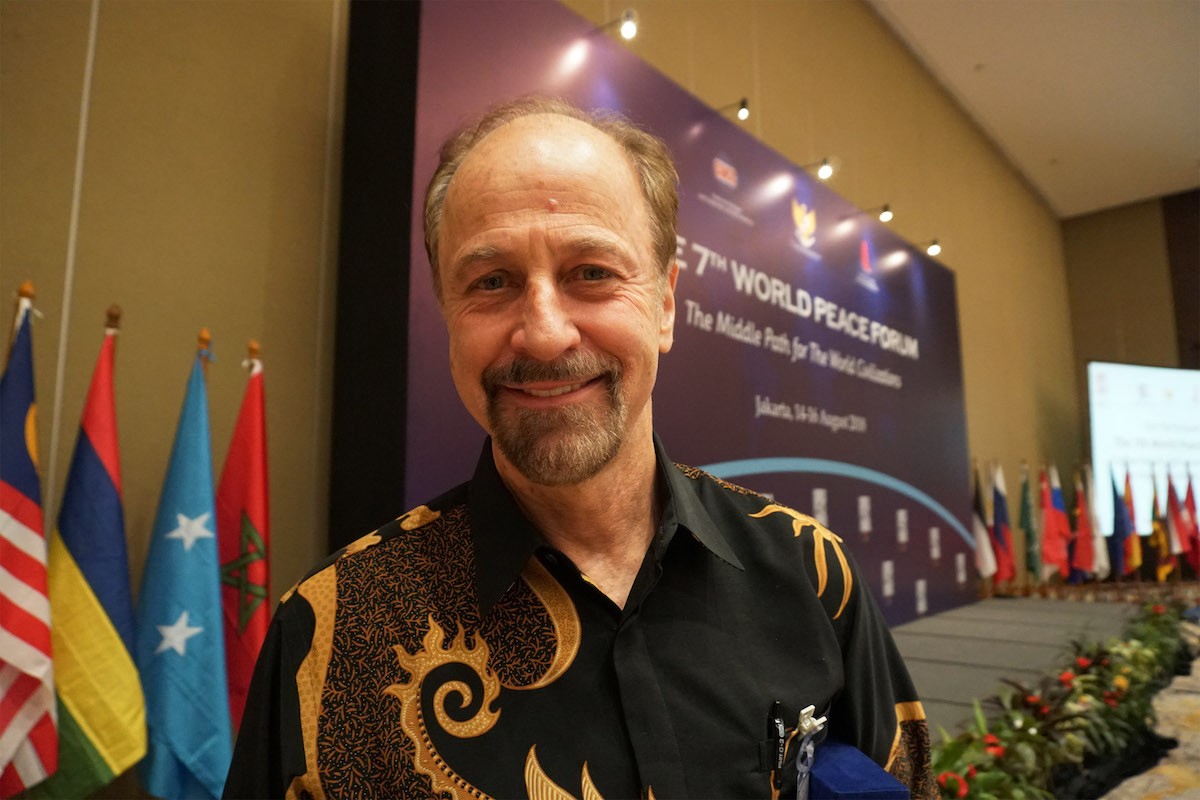 Robert Heffner (JP/UMR)
Robert Heffner (JP/UMR)
I
ndonesia has just hosted the seventh World Peace Forum, which discussed the middle path approach for a new world civilization. The Jakarta Post's Liza Yosephine and Sausan Atika Maesara sat down for an interview with Robert Hefner, professor of anthropology and director of the Institute on Culture, Religion and World Affairs at Boston University in the United States. Hefner, who participated in the biennial forum in Jakarta, has studied Muslim culture, politics and education and the comparative sociology and anthropology of world religions for the past 30 years. The following are excerpts from the interview.
Question: How do you view the middle path for a new world civilization?
Answer: The middle path reminds us that we live in a world that is being torn between extremes. We have extremism of violence and a certain style of religious extremism in all faith communities. Among some, we would call secularist extremists. On the other hand, we have extremism that sometimes tends to the think that just one solution is all that’s needed.
The middle path reminds us that there has to be a kind of kerja sama [cooperation] or interaction among peoples and different aspects of society, economics and politics, so that there is a balance and avoidance of those extremes.
What needs to be done for people living side by side to embrace the middle path?
They have to recognize each other first. And to recognize, there has to be a willingness in society. And if you are willing, [to develop] a methodology for recognizing each other. Emphasis on recognition of people of all backgrounds is vital if one is to have cooperation among people all around the world.
What can we learn from the Indonesian experience as a pluralist nation?
I think one of the benefits from Indonesian history is that Pancasila actually prescribes very general but important principles of recognition of all Indonesians, as [Indonesians] share something in common.
In this regard, I think Pancasila offers relevant examples for well beyond the nation of Indonesia alone.
Pancasila is a philosophy. And a philosophy is something that has to be reinterpreted in the face of social change. I think that is both the challenge but also the benefit of Pancasila.
And also, it [Pancasila] provides an illustration to the world in which the desire to recognize people from all backgrounds has to be constantly re-invigorated in the face of international political crises and ongoing economic changes.
What do you think Indonesia should do to achieve the middle path?
I think the important thing is that the political and cultural process remains open and not driven to extremes.
One thing that we have seen in some Western countries recently, people of good faith, who are living the middle way, have been pushed to the side by what we might call radical populists. The characteristics that they [radical populists] share is trying to oversimplify the world and create a binary between one community. That one community is being alienated or made incompatible with society and seen as lacking in any kind of world. Therefore, [such a community] is not deserving of any recognition.
One hope that Indonesia can work with is its own cultural traditions, which recognize the importance of the interaction of cross-cultural differences. But at the same time, ensuring that the political process is not driven and influenced by a radical populist tendency.
What can we expect as an outcome of the World Peace Forum?
The emphasis on the middle way or wasatiyyah [moderation] is something that is relevant well beyond Muslim-majority countries and communities. It is a principle that is not always emphasized to the same degree in other religious and political traditions.
So, I think this conference is just reminding people of the world that there is a danger from all types of extremes, not just about terrorism but also other extremists with regard to market policies, capitalism or whatever.
The most important contribution is to remind us that we have to work together to find a middle way across civilizations as well as within each one.

